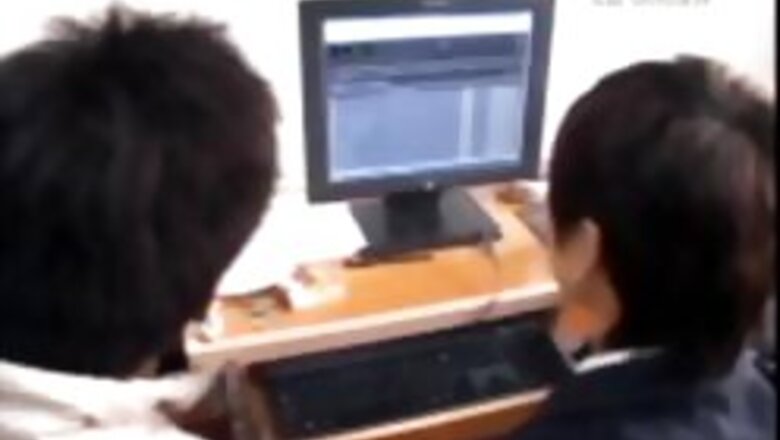
views
New Delhi: India and China swore eternal friendship during a summit in Beijing in January, 2008.
Three months later, senior MEA officials admitted that the computers at the Indian Embassy in Beijing had been hacked. The Government also admits that its websites and portals are under sustained attack from Chinese cyber crawlers.
Indian intelligence sources say the Chinese are hoping to get information and data regarding Indian software being used for battlefield purposes and into designing new weapons and equipment.
Chairman,Central Security Commission, Admiral Suresh Mehta says, "There is reasonable fire-walling and crypto for our systems. These kind of things will keep happening as even the best of the computers can be hacked. Despite all this, our work goes on. These cat-and-mouse games will continue."
But the officials warn that China is trying to control cyberspace offensively. The Peoples Liberation Army is known to operate highly sophisticated divisions and commands for cyber operations.
Chinese hackers have been mobilised into Unions and Red Alliances with official backing.
An official declaration set the deadline of 2050 when China will be able to stop any army in its tracks through cyber warfare.
The matter was serious enough for the UN to take it up last month in Geneva and the US, France and Russia put China on the mat for its cyber conduct. However, Beijing denied any wrongdoing dismissing it all as fabrication.
Meanwhile, cyber experts say India must move quickly to plug gaps in its cyber security.
"India as such doesn't have any concrete laws for cyber security and we need a Government policy to prevent hacking," says cyber law expert, Pawan Duggal.
A critical information infrastructure protection policy must be framed, the revised IT Act with safeguards should be passed by Parliament and India must look at cyber security from a national security standpoint to prevent its websites being hacked.
CEO Cyberoam, Hemal Patel says, "The problem is that Indian government is buying and installing China-made software on computers that store sensitive information. Earlier, the Chinese had no access to our secrets. Now, we've laid it all bare for them. We've exposed ourselves. We're almost asking to be robbed."
Implementing existing laws and regulations is another matter. The IT Act, passed eight years ago, has managed only two convictions.
The mystery is how a globally acclaimed IT-giant like India is at the receiving end of a country scrambling to get onto the IT bandwagon? The answer evidently lies in the manner in which China has prioritised and structured its assault on cyberspace.
(With inputs from Jaimon Joseph)




















Comments
0 comment